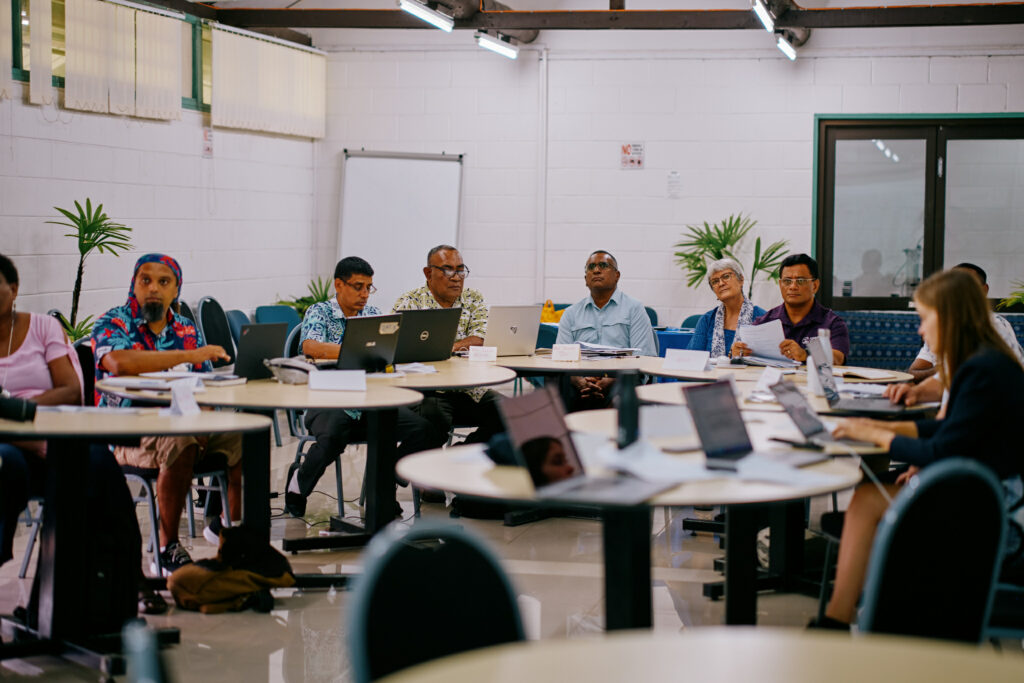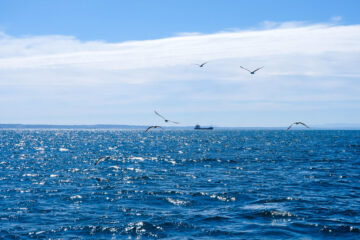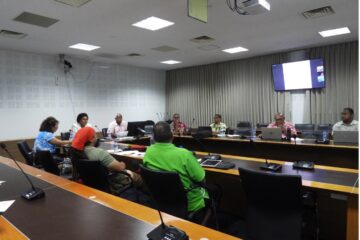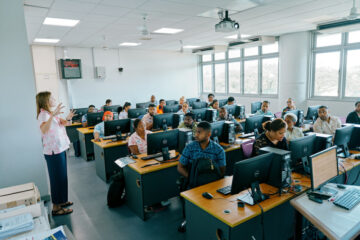The PacMAN project and stakeholder work was presented at the second International Ocean Data Conference held in Paris on the 20th to the 21st of March 2023. The presentation was part of session 2: Community engagement and capacity development in data literacy.
The presentation focused on the approach to stakeholder-led project development and was called Local stakeholder engagement leading to operational marine invasive species management in Fiji, the PacMAN project.
During the presentation, it was demonstrated that the PacMAN project, led by the University of South Pacific (USP), is working on an early-detection monitoring system for marine invasive species in the Pacific Islands. The system uses environmental DNA (eDNA) analyses to provide early warnings, with a focus on encouraging open sharing of data products and workflows, and developing data management capacity in the region. The presentation emphasized the project’s strong stakeholder engagement from the beginning, with strategies including a locally chaired advisory board, project review meetings, and training courses to ensure local capacity development. The project has gained support from major stakeholders in Fiji, including the Ministry of Environment, Ministry of Fisheries, Maritime Safety Authority, Port Authority, and Ministry of Health and Medical Services. A local stakeholder meeting was held to discuss the project’s progress and the needs for a decision support tool. The stakeholders provided input on the type of risk analyses required, the geographic range, the need for expert confirmation of results before alerts, and the amount of information on impact/management action to be provided directly through the system. The presentation also highlighted the first-ever eDNA course in Fiji, which trained participants from 7 institutions on the optimized PacMAN protocols. The project will continue to develop and test decision support models, operationalize sampling and molecular analysis, perform data management, and hold a training workshop on the decision support tool to ensure uptake of the system. Regional organizations such as the Secretariat of the Pacific Community (SPC) and the Secretariat of the Pacific Regional Environment Programme (SPREP) will play a crucial role in expanding PacMAN activities into other Pacific Islands, forming an interconnected alert network to prevent and mitigate the spread of invasive species in the region.

During the presentation, it was shown that the PacMAN project has already benefited greatly from the codesign approach by achieving the following:
- Access to the Suva port and the ability to choose the most representative sampling sites at the port were made possible through collaboration with the Fiji Ports Authority. This has allowed for more accurate and effective monitoring of marine invasive species.
- Collaboration with the Biosecurity Authority of Fiji (BAF) has provided access to a qPCR machine and facilitated communication with other work on biosecurity. This has allowed for greater coordination and cooperation in addressing biosecurity challenges in Fiji.
- Securing stakeholder buy-in and mandates for monitoring with the Fiji Ministry of Environment, and its director as chair of the advisory board, has been crucial in ensuring the success of the project. This has helped to build trust and support among the local community and decision-makers.
- Additional funding and support for the scientific training course was secured from BAF, demonstrating the importance of collaborative partnerships in addressing biosecurity challenges.
- The project has also identified other needs for monitoring and possible future project developments, such as monitoring for pathogens and toxins that are of high risk to aquaculture and fisheries, with the Ministry of Fisheries and the Secretariat of the Pacific Community (SPC).
- Understanding the link and mandates for international vessel monitoring and management with the Maritime Security Authority of Fiji (MSAF) has helped to ensure effective management of invasive species.
- Gaining access to the marine specimen collection at USP and their expertise for specimen collection and preservation has been invaluable in supporting the project’s research activities.
- Promoting PacMAN regionally through contacts at SPC and the Secretariat of the Pacific Regional Environment Programme (SPREP) as well as participation in regional workshops has helped to raise awareness and build support for the project.
Overall, the codesign approach has helped to bring marine biosecurity to the agenda of decision-makers in Fiji and initiate a community around the issue. By engaging with stakeholders from the outset, the PacMAN project has been able to build strong partnerships and secure the support and resources needed to achieve its goals.
The full presentation is available on the conference website and can be also watched on youtube here.



0 Comments